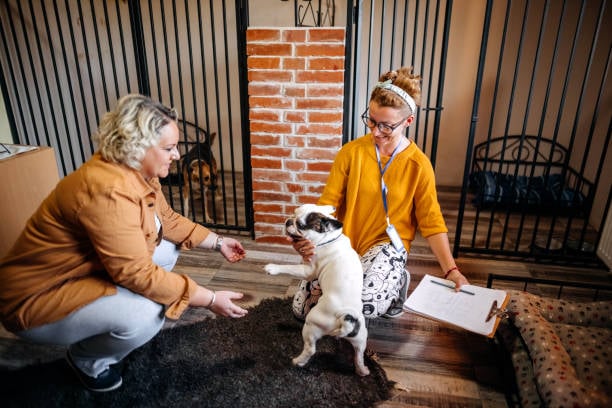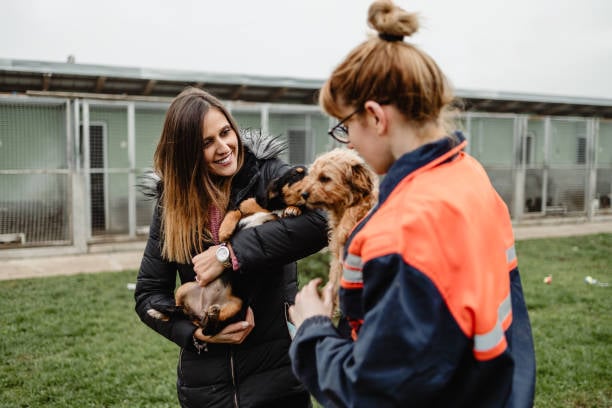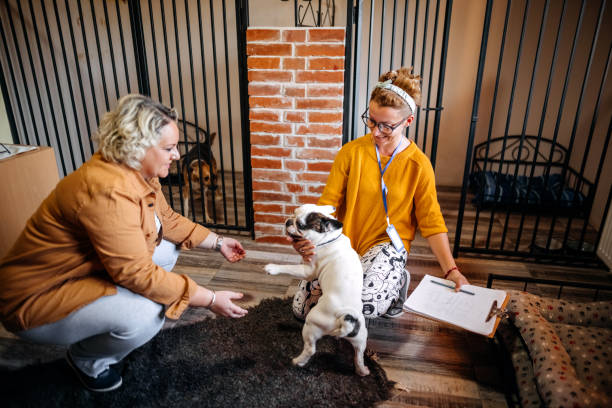The quality of your services hinges significantly on the capabilities and confidence of your team. Effective staff training is not just about teaching the basics of pet care; it's about continuously developing your team's skills to enhance service quality, improve customer satisfaction, and ensure the safety and well-being of the pets entrusted to your care. This blog post outlines essential strategies for designing and implementing a robust staff training program tailored specifically for pet-care businesses.
Importance of Staff Training in Pet Care

Training your team goes beyond the initial onboarding process. Continuous training helps staff stay updated with the latest pet-care techniques, health and safety regulations, and customer service practices. Moreover, a well-trained team is more engaged and motivated, leading to lower turnover rates and a more positive workplace atmosphere.
Developing a Comprehensive Training Program

1. Define Clear Objectives and Outcomes
Start by clearly defining the objectives of your training program. What skills do your staff need to develop? How will these skills improve their performance and benefit your business? Setting clear outcomes for each training session ensures that both trainers and trainees understand the goals and can work effectively towards achieving them.
2. Incorporate a Blend of Training Methods
Different staff members learn in different ways. Incorporating a variety of training methods can cater to diverse learning preferences and enhance the overall effectiveness of your program. This can include:
- Hands-on training: Especially vital in pet care, where practical skills are paramount.
- Classroom sessions: For theoretical knowledge like customer service protocols or understanding pet behavior.
- Online modules: Convenient for ongoing training on new products, services, or policies.
- Mentorship programs: Pairing less experienced staff with seasoned mentors for ongoing learning and support.
3. Focus on Core Competencies and Specializations
Identify core competencies that all staff members should possess, such as basic pet first aid, handling techniques, and customer interaction skills. Additionally, encourage specializations in areas like grooming techniques, breed-specific knowledge, or advanced pet health care. Specializations can not only improve the services offered but also help staff members feel more valued and invested in their roles.
4. Regularly Update and Refresh Training Content
The pet-care industry is continuously evolving, with new research, technologies, and best practices. Regularly updating training materials to reflect these changes is crucial. This ensures your team is always equipped with the latest knowledge, keeping your services at the cutting edge and maintaining high standards of care.
5. Create an Inclusive and Supportive Training Environment
Foster a training environment that is supportive and inclusive. Encourage staff to ask questions, share experiences, and express concerns. An open environment promotes continuous learning and improvement, helping staff to feel more confident and competent in their roles.
6. Evaluate and Adapt Training Programs
Regular evaluation of your training program is key to its success. Gather feedback from staff to find out what is working and what isn’t. Use this feedback to make necessary adjustments, ensuring the training remains relevant, effective, and aligned with both staff needs and business goals.
7. Invest in Professional Development
Consider investing in external training opportunities for your staff, such as workshops, seminars, or certifications. These opportunities not only enhance their skills but also demonstrate your commitment to their professional growth.
Effective staff training is crucial for maintaining the quality and competitiveness of your pet-care business. By investing in a comprehensive and adaptable training program, you not only enhance your team’s skills but also foster a work environment that values growth, excellence, and compassionate care. Remember, a well-trained team is your most valuable asset in ensuring the health and happiness of the pets in your care and the satisfaction of your clients.
Subscribe to the Gingr Blog






